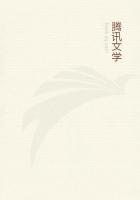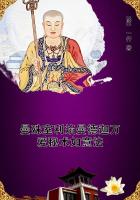SPEECH IN SPRINGFIELD, ILLINOIS, JUNE 26, 1857.
FELLOW-CITIZENS:--I am here to-night partly by the invitation of some of you, and partly by my own inclination. Two weeks ago Judge Douglas spoke here on the several subjects of Kansas, the Dred Scott decision, and Utah. I listened to the speech at the time, and have the report of it since. It was intended to controvert opinions which I think just, and to assail (politically, not personally) those men who, in common with me, entertain those opinions. For this reason I wished then, and still wish, to make some answer to it, which I now take the opportunity of doing.
I begin with Utah. If it prove to be true, as is probable, that the people of Utah are in open rebellion to the United States, then Judge Douglas is in favor of repealing their territorial organization, and attaching them to the adjoining States for judicial purposes. I say, too, if they are in rebellion, they ought to be somehow coerced to obedience; and I am not now prepared to admit or deny that the Judge's mode of coercing them is not as good as any. The Republicans can fall in with it without taking back anything they have ever said. To be sure, it would be a considerable backing down by Judge Douglas from his much-vaunted doctrine of self-government for the Territories; but this is only additional proof of what was very plain from the beginning, that that doctrine was a mere deceitful pretense for the benefit of slavery. Those who could not see that much in the Nebraska act itself, which forced governors, and secretaries, and judges on the people of the Territories without their choice or consent, could not be made to see, though one should rise from the dead.
But in all this it is very plain the Judge evades the only question the Republicans have ever pressed upon the Democracy in regard to Utah. That question the Judge well knew to be this:
"If the people of Utah peacefully form a State constitution tolerating polygamy, will the Democracy admit them into the Union?" There is nothing in the United States Constitution or law against polygamy; and why is it not a part of the Judge's "sacred right of self-government" for the people to have it, or rather to keep it, if they choose? These questions, so far as I know, the Judge never answers. It might involve the Democracy to answer them either way, and they go unanswered.
As to Kansas. The substance of the Judge's speech on Kansas is an effort to put the free-State men in the wrong for not voting at the election of delegates to the constitutional convention.
He says:
"There is every reason to hope and believe that the law will be fairly interpreted and impartially executed, so as to insure to every bona fide inhabitant the free and quiet exercise of the elective franchise."
It appears extraordinary that Judge Douglas should make such a statement. He knows that, by the law, no one can vote who has not been registered; and he knows that the free-State men place their refusal to vote on the ground that but few of them have been registered. It is possible that this is not true, but Judge Douglas knows it is asserted to be true in letters, newspapers, and public speeches, and borne by every mail and blown by every breeze to the eyes and ears of the world. He knows it is boldly declared that the people of many whole counties, and many whole neighborhoods in others, are left unregistered; yet he does not venture to contradict the declaration, or to point out how they can vote without being registered; but he just slips along, not seeming to know there is any such question of fact, and complacently declares:
"There is every reason to hope and believe that the law will be fairly and impartially executed, so as to insure to every bona fide inhabitant the free and quiet exercise of the elective franchise."
I readily agree that if all had a chance to vote they ought to have voted. If, on the contrary, as they allege, and Judge Douglas ventures not to particularly contradict, few only of the free-State men had a chance to vote, they were perfectly right in staying from the polls in a body.
By the way, since the Judge spoke, the Kansas election has come off. The Judge expressed his confidence that all the Democrats in Kansas would do their duty-including "free-State Democrats," of course. The returns received here as yet are very incomplete; but so far as they go, they indicate that only about one sixth of the registered voters have really voted; and this, too, when not more, perhaps, than one half of the rightful voters have been registered, thus showing the thing to have been altogether the most exquisite farce ever enacted. I am watching with considerable interest to ascertain what figure "the free-State Democrats" cut in the concern. Of course they voted,--all Democrats do their duty,--and of course they did not vote for slave-State candidates. We soon shall know how many delegates they elected, how many candidates they had pledged to a free State, and how many votes were cast for them.
Allow me to barely whisper my suspicion that there were no such things in Kansas as "free-State Democrats"--that they were altogether mythical, good only to figure in newspapers and speeches in the free States. If there should prove to be one real living free-State Democrat in Kansas, I suggest that it might be well to catch him, and stuff and preserve his skin as an interesting specimen of that soon-to-be extinct variety of the genus Democrat.
And now as to the Dred Scott decision. That decision declares two propositions--first, that a negro cannot sue in the United States courts; and secondly, that Congress cannot prohibit slavery in the Territories. It was made by a divided court dividing differently on the different points. Judge Douglas does not discuss the merits of the decision, and in that respect I shall follow his example, believing I could no more improve on McLean and Curtis than he could on Taney.















